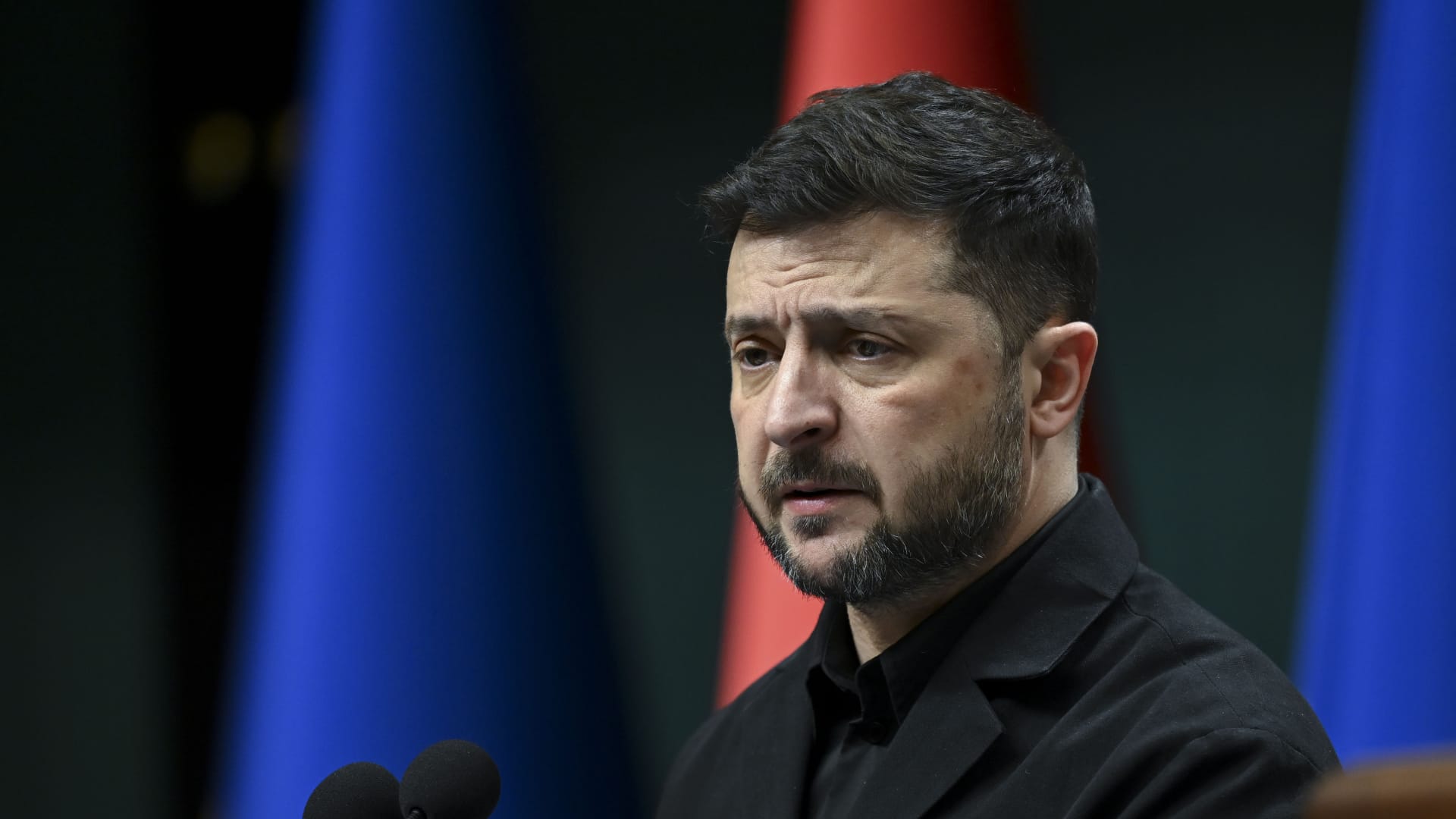Ukraine's Diplomatic Tightrope: Preserving Sovereignty Amidst US-Russia Peace Plan & Trump's Pressure
 Ukraine
International Relations
Ukraine
International Relations

Ukraine grapples with a pro-Russian peace plan from the US and Russia, leading to tense Swiss talks. Trump's pressure mounts as Kyiv seeks sovereignty and secur
Ukraine's Diplomatic Tightrope: Balancing Sovereignty Amidst US-Russia Peace Plan and Trump's Pressure
A covert 28-point peace proposal, reportedly crafted by Russia and the White House, has thrust Ukraine into a high-stakes diplomatic scramble. Revealed last week, the plan, widely perceived as pro-Russian, ignited urgent discussions between U.S. and Ukrainian officials over the weekend in Switzerland. Kyiv found itself navigating a treacherous path: demonstrating a willingness to negotiate while fiercely protecting its sovereignty and territorial integrity against demands seen as highly unfavorable.
Kyiv's Red Lines and Contested Concessions
The controversial peace blueprint, conceived without Ukraine's involvement, contained conditions that crossed what Kyiv terms "red lines." These included contentious proposals such as Ukraine ceding the eastern Donbas region and drastically reducing its military by 50%. Initially met with a stark silence from Ukrainian President Volodymyr Zelenskyy and his European allies, analysts quickly labeled the plan as tantamount to a capitulation to Moscow's maximalist demands.
Amidst this tense backdrop, former U.S. President Donald Trump issued an ultimatum to Kyiv, demanding a response by Thursday, while Russian President Vladimir Putin expressed approval, calling it the "basis of a final peace settlement." Zelenskyy eventually broke his silence, characterizing the moment as one of the most challenging in Ukraine's history, forcing a choice between "losing its dignity or losing a key partner" – a clear reference to the United States.
Trump's Pressure and Evolving Discussions
The pressure intensified when Trump took to Truth Social, publicly accusing Ukraine of "zero gratitude" for U.S. peace efforts, just ahead of crucial U.S.-Ukraine talks on Sunday. Despite the public admonition, these discussions, involving U.S. Secretary of State Marco Rubio and a Ukrainian delegation led by Zelenskyy's top aide Andriy Yermak, reportedly yielded positive results. Rubio hailed "tremendous progress," announcing the creation of an "updated and refined peace framework" to be developed further throughout the week.
The Demand for Lasting Peace and Security Guarantees
While Ukraine might begrudgingly accept the unlikelihood of NATO membership – a long-standing Russian demand – robust post-war security guarantees remain paramount for Kyiv. Ukraine has vehemently resisted relinquishing any partially occupied territory, fearing such concessions would merely allow Russia to regroup and launch future invasions. Kyiv's consistent message is a pursuit of a "just and lasting peace," not a temporary agreement prone to collapse. Rubio, while vague on specifics, affirmed that achieving a final peace necessitates Ukraine feeling secure from future attacks, indicating "substantial progress" on this front.
Path Forward: Russian Approval and Lingering Doubts
However, the path forward remains complex. Rubio underscored that any agreement reached with Ukraine would ultimately require Russia's endorsement. Trump's subsequent post on Truth Social, questioning the sincerity of progress, added another layer of uncertainty, though he hinted "something good just may be happening."
Ukrainian President Zelenskyy described the recent talks as "substantive," emphasizing the need for meticulously planned joint actions with partners to ensure enduring peace and guaranteed security. Ukrainian lawmaker Oleksiy Goncharenko echoed this sentiment, stressing the "absolutely vital" nature of security guarantees. He acknowledged that while some aspects of the original peace plan were unacceptable – particularly abandoning people in the Donbas region – the emergence of a framework was a positive step for diplomacy, suggesting a freeze of the conflict along the current front lines as a viable option. The journey toward a stable resolution for Ukraine remains fraught with intricate negotiations and critical decisions.